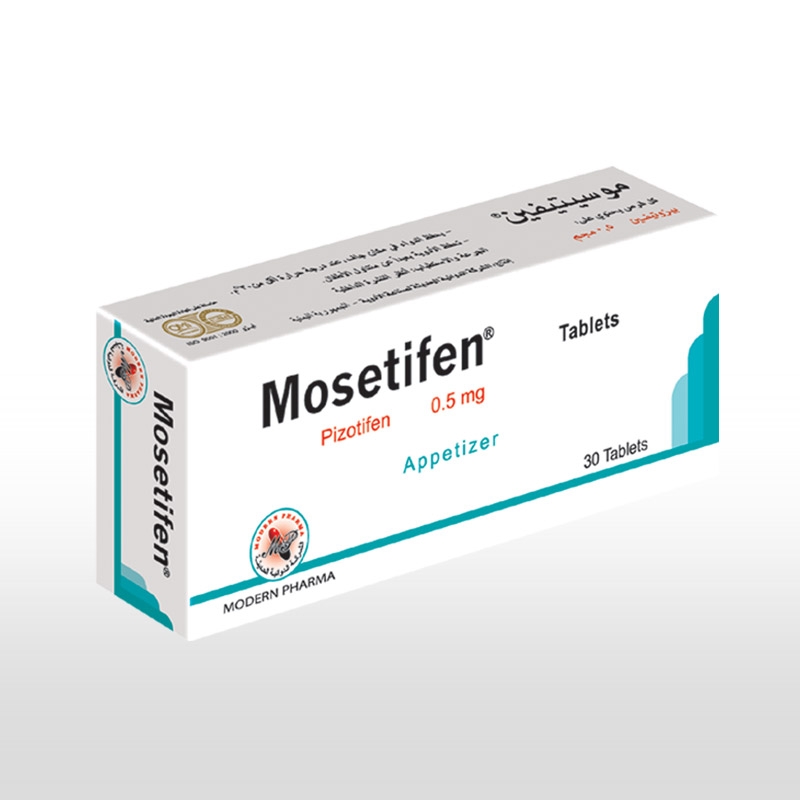MOSETIFEN
Pizotifen has an appetite –stimulating action suitable for increasing
body weight in underweight anorectic patients. The compound is
well tolerated, permitting treatment of anorexia both in children and
adults.
-In elderly people Pizotifen has been shown to improve disturbed
mood by alleviating symptoms such as hopelessness, feeling of
dejection or oppression , asthenia , anxiety, restlessness, sleep
disturbances ,and impairment of concentration or memory..
-Owing to inhibitory effect on biogenic amines, Pizotifen is also
used for prophylactic treatment of migraine.
-Pizotifen absorption is fast ( 0.5 to 0.8 hours ) and nearly complete.
-The absolute bioavailability of pizotifen is 78%. Maximum blood
levels are reached 5 hours after a single 2 mg oral administration of
Pizotifen.
-91 % of Pizotifen is bound to plasma proteins.
-Pizotifen is extensively metabolized, about 55 % of pizotifen dose
is excreted in urine as metabolites ,and less than 1 % unchanged.
About 18% of applied dose is found in feces.


